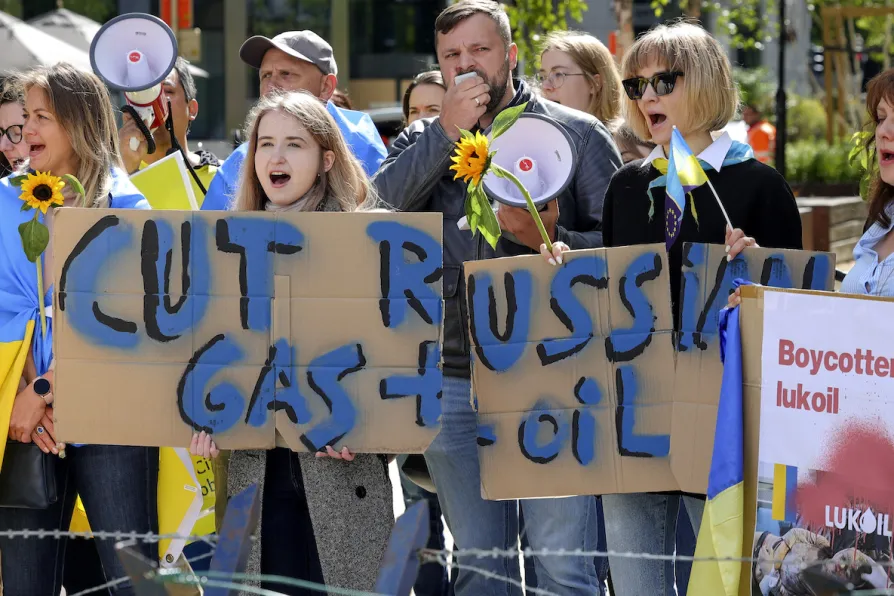Does widespread and uncontrolled use of AI change our relationship with scientific meaning? Or with each other? ask ROX MIDDLETON, LIAM SHAW and MIRIAM GAUNTLETT

 Demonstrators demanding an embargo on Russian oil during a protest in front of the Europa building in Brussels on May 30th
Demonstrators demanding an embargo on Russian oil during a protest in front of the Europa building in Brussels on May 30th
THE European Council met this week to consider sanctions against Russia. Germany, France and Italy, for the second time, anticipated the event with a private conclave to see how their common interests can be asserted against the Anglo-American alliance and its followers in eastern Europe.
Italian premier Mario Draghi, just returned from a transatlantic trip, and Emmanuel Macron and Olaf Scholz from pow-wows with Vladimir Putin are determined, it seems, to find a workaround.
Italy is dependent on Russian energy and Draghi is dragged in two directions. He argues on one hand that it is essential Putin does not win this war, entreating: “We must maintain unity on sanctions. Italy agrees with the package, as long as there are no imbalances between member states.”

Western nations’ increasingly aggressive stance is not prompted by any increase in security threats against these countries — rather, it is caused by a desire to bring about regime changes against governments that pose a threat to the hegemony of imperialism, writes PRABHAT PATNAIK

US tariffs have had Von der Leyen bowing in submission, while comments from the former European Central Bank leader call for more European political integration and less individual state sovereignty. All this adds up to more pain and austerity ahead, argues NICK WRIGHT











